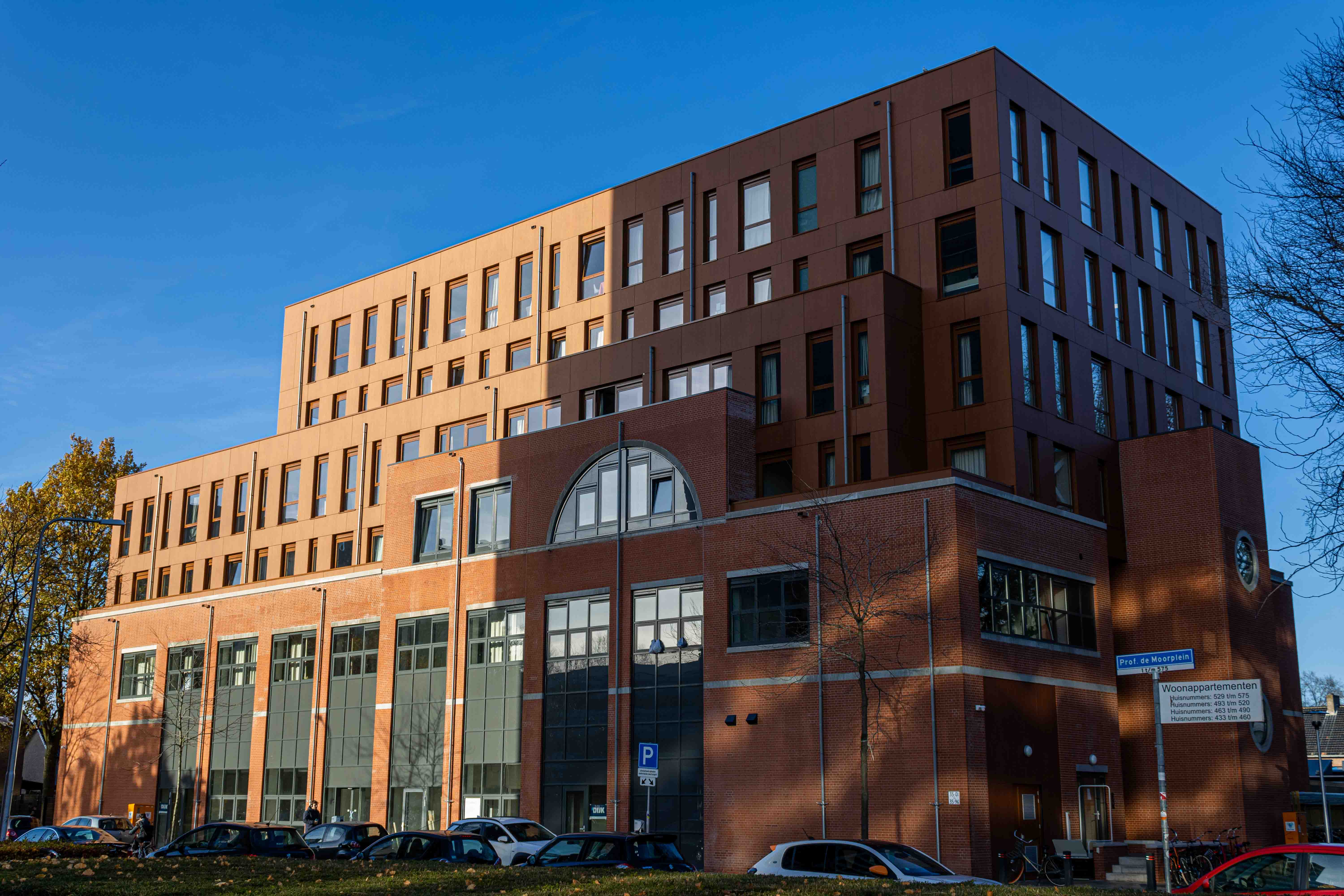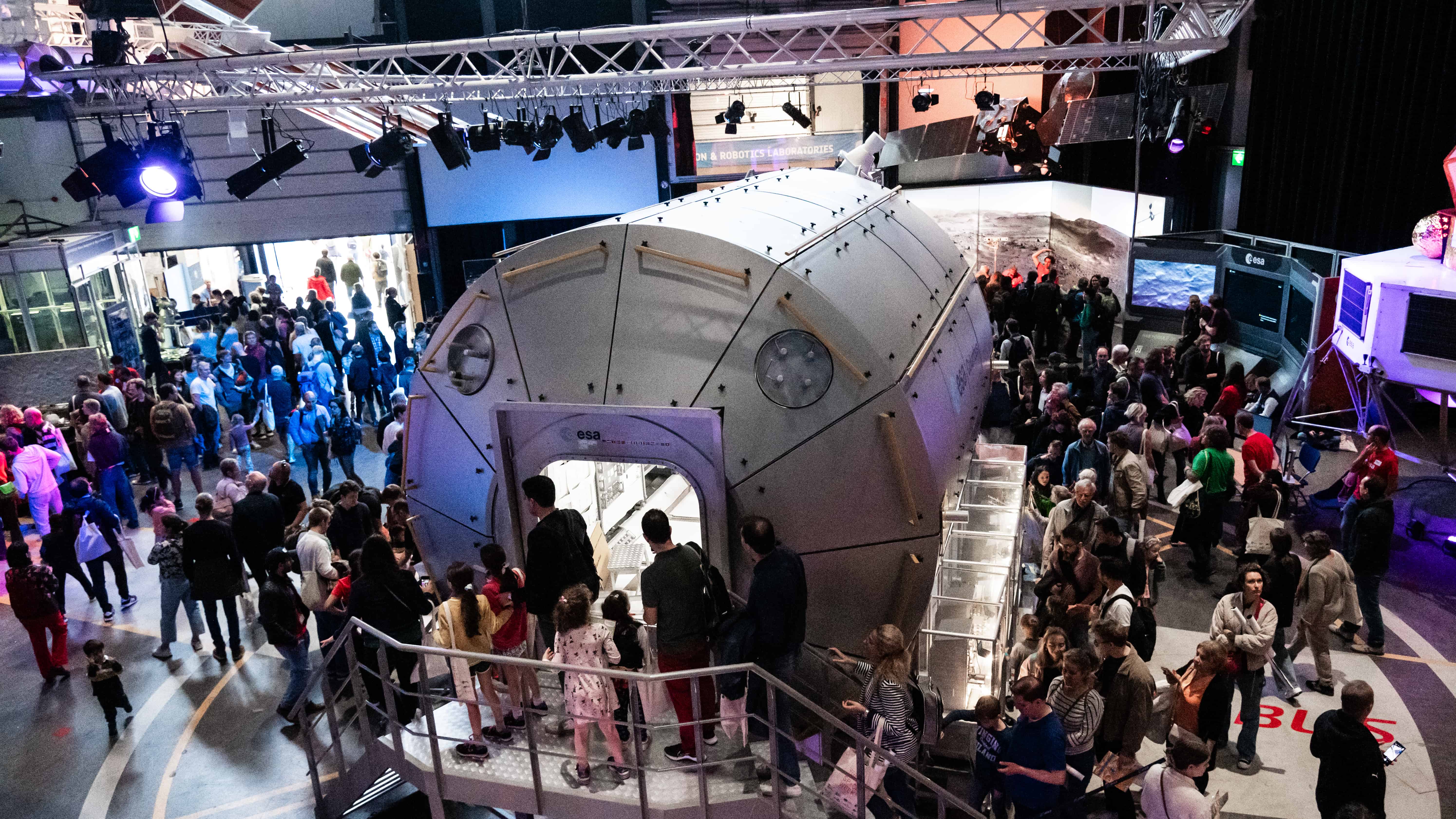
No, Commissioner Mirjam Wulfse really won’t be saying that this Hyperloop terminal will be located in Groningen now that the province and the municipality have managed to secure the sought-after test centre location for the Delft-based start-up Hardt’s suspended subway. “But if it did actually happen that would, of course, be absolutely fantastic,” the VVD politician states. Because then Groningen would all of a sudden turn into the centre of Europe, and it would no longer be a far-flung corner of The Netherlands that you don’t travel to so readily.
Much more on innovation in Groningen here
Why were you so eager to have the Hyperloop test centre based in Groningen?
“Because we are busy with the greening of mobility across all fronts as well as with the mobility of the future. That spans quite far. It’s also about our energy program. As a province, we are working on a substantial bid for a wind farm at sea, on the Wadden Sea. We want to transfer that wind energy to Eemshaven, where it will be converted into hydrogen via electrolysis. We want to become a key province which introduces hydrogen to the transportation sector, as in to large volumes of traffic. And we are also doing trials with autonomous transport. Because we have several areas that are in decline.”

Because some manned bus lines are no longer profitable on some routes?
“Among other things. Although people do need them. The trial with the first self-driving train, for example, was started yesterday by my fellow representative Fleur Gräper [D66, ed.]. And we have purchased twenty new electric buses. So we are working on the transportation of the future in all kinds of ways. We really want to be a forerunner in this. We have the Hive.Mobility centre. Affiliated to the centre are innovative companies such as Holthausen in Hoogezand, a small-scale company that is also working with hydrogen and converting vehicles so that they can run on hydrogen.”
Can they run an old VW on hydrogen too?
“Yes, they did do that over there. There’s still one of those converted VWs at their company. But they also made, for example, a hydrogen-powered street sweeper truck that rides around Amsterdam.”
What precisely is the relationship that the Hyperloop test centre has with these companies?
“In Groningen, we want to be involved in the transportation of the future in all sorts of ways. The arrival of the Hyperloop test centre fits in perfectly with that.”
What are your expectations for Groningen with the arrival of the Hyperloop test centre?
“We have some very interesting parties here who want to conduct tests with the Hyperloop. During the selection interviews, we were also asked which parties we have here who would like to cooperate with Hardt. We were able to name a number of parties on the spot back then.”
Could you name them now?
“For example, companies like Koopman Logistics in Leek, and Heiploeg. The latter is a company which transports shrimp caught by fishermen in Zoutkamp near the Wadden Sea to Morocco so that they can be peeled there.”
If you want to transport that shrimp to Morocco by Hyperloop, a tunnel to Morocco must be built …
“You could do some tests to see: ‘Does it work? And then you could implement the system on a large scale. But it might also go in another direction. This open development and modern operational management is very appealing to us”.
What do you think the chances are that there might be a boarding terminal in Groningen?
“Soon they’ll have been experimenting with the Hyperloop for ten years and then we will know a lot more than we do now. But to be honest, I have no idea whether it is likely to happen. Of course, it would be fantastic.”
A hyperloop station in Groningen would be a good solution for villages that are emptying out. Then perhaps more people would settle in Groningen who are currently living and working in the Randstad [Amsterdam/Flevoland/Utrecht/Rotterdam/The Hague region, where the majority of residents live and work, ed.] Even though it is overcrowded and extremely expensive.
“That’s why the connection is so high up on the agenda here.”
You had the money for the Zuiderzee line that didn’t eventuate in the end, right? You no longer have to do that, since you can use the Hyperloop connection then.
“Yes. However, we did get a hefty compensation for that. By the way, €3 million from the province will be paid in monetary terms to Hardt Hyperloop [in contrast to the €1 million from the local council, ed.]. That comes from a fund intended for structural improvements for the future and the economic development of Groningen. The arrival of the Hyperloop test centre fits in very well with that.”







